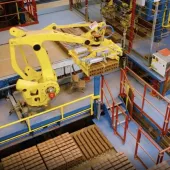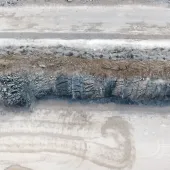
2019 report highlights the UK cement industry’s contribution to the circular economy
MPA Cement has published its 2019 Sustainable Development Report, based on data provided by MPA Cement’s five member companies who together supplied 78% of the cement consumed in the UK in 2018.
Aligned with the seven Mineral Products Association (MPA) strategic priorities, the report highlights activity in Health and Safety, Communicating Industry Value, People, Resource Use, Climate Change and Energy, the Natural Environment, and the Built Environment.
Highlights include:
- The health and safety lost-time frequency rate is 71% lower since 2005
- CO2 emissions reduced 25% from 1998
- Zero process waste was sent to landfill
- 1.4 million tonnes of waste and by-products from other sectors were recycled by the UK cement industry, resulting in a recycled content of cement of almost 10%
- Waste-derived fuels replaced 43% of the fossil fuel energy demand
- Cement continues to be a key contributor to the £152 billion construction industry
- Domestic cement sales have increased 29% since 2012 but 2018 sales were 1% lower than 2017.
Of particular significance is positive performance in the area of climate change and energy, where in 2018 CO2 emissions reduced 25% from 1998, largely due to the UK cement industry’s success in improving its carbon footprint by increasing energy efficiency, using alternative fuels instead of traditional fossil fuels, and utilizing renewable energy sources.
In 2018, the MPA actively engaged with Defra on development of its Clean Air Strategy for England and the UK-wide National Air Pollution Control Programme, building on the industry’s investment in cleaner processes.
Recycling and resource use were equally positive in 2018, with 1.4 million tonnes of waste and by-products from other industries being co-processed in cement production. The recycled content of cement was shown to be almost 10% due to the cement production process’s unique capability to recycle minerals and recover heat simultaneously (known as co-processing). Additionally, zero process waste was sent to landfill.
Welcoming the report, Dr Richard Leese, director of MPA Cement, said: ‘UK cement producers continue the long-term trend to improve their environment, health and safety performance, whilst facing increased international competition and a recently challenging market.
‘It is clear that our stakeholders, customers and communities want further environmental action and our members are acting on that challenge. By continuing our transparency on environmental performance in this report and providing the UK economy with low-carbon products, the industry’s aspiration matches those that we serve.
‘In the years ahead, the challenges will become tougher and will require co-ordinated effort from the industry, the supply chain, government and its agencies. MPA is ready to play its part.’
A copy of 'MPA Cement Sustainable Development Report 2019' can be downloaded below.







